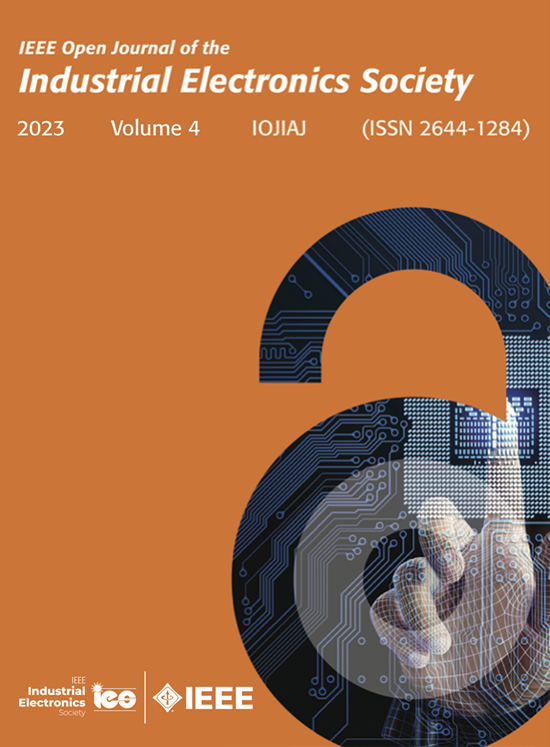Run-Time Value Chain Analysis and Cost Accounting via Microservices in Agile Manufacturing
IF 4.3
Q1 ENGINEERING, ELECTRICAL & ELECTRONIC
IEEE Open Journal of the Industrial Electronics Society
Pub Date : 2025-01-22
DOI:10.1109/OJIES.2025.3532664
引用次数: 0
Abstract
The rapid evolution of manufacturing processes driven by Industry 4.0 demands systems capable of quickly adapting to dynamic market conditions and evolving customer needs. Agile manufacturing emphasizes flexibility, adaptability, and real-time responsiveness, posing challenges in run-time value chain analysis (VCA), including cost flows and production times. This article presents a novel two-stage VCA approach using an activity-based costing mechanism via microservices to address these challenges. The VCA system enables real-time cost accounting and decision-making, supporting both pre and postproduction VCA, contrasting with traditional methods that rely on historical data. The first stage involves top–down cost calculations from resources to microservices. In contrast, the second focuses on constructing efficient manufacturing activities based on product requirements, allowing for granular analysis of costs and production times across microservices, activities, broader business processes, and finally, cost objects (e.g., customized products, batches of products, or customer invoices). The approach is validated through a proof-of-concept implementation of the VCA system integrated with the Eclipse Arrowhead framework and simulating Fischertechnik indexed line milling, drilling, and conveying operations. The results demonstrate the effectiveness of the proposed method in providing detailed insights into costs and production times, enhancing the efficiency and competitiveness of agile manufacturers.基于微服务的敏捷制造运行时价值链分析与成本核算
由工业4.0驱动的制造工艺的快速发展要求系统能够快速适应动态的市场条件和不断变化的客户需求。敏捷制造强调灵活性、适应性和实时响应能力,这对运行时价值链分析(VCA)提出了挑战,包括成本流和生产时间。本文提出了一种新的两阶段VCA方法,通过微服务使用基于活动的成本计算机制来解决这些挑战。与依赖历史数据的传统方法相比,VCA系统能够实现实时成本核算和决策,支持前期和后期的VCA。第一阶段包括从资源到微服务自上而下的成本计算。相比之下,第二种侧重于基于产品需求构建高效的制造活动,允许跨微服务、活动、更广泛的业务流程以及最后的成本对象(例如,定制产品、产品批次或客户发票)对成本和生产时间进行细粒度分析。通过集成Eclipse箭头框架的VCA系统的概念验证实现,并模拟Fischertechnik索引线铣削、钻井和输送操作,验证了该方法的有效性。结果表明,该方法在提供成本和生产时间的详细信息,提高敏捷制造商的效率和竞争力方面是有效的。
本文章由计算机程序翻译,如有差异,请以英文原文为准。
求助全文
约1分钟内获得全文
求助全文
来源期刊

IEEE Open Journal of the Industrial Electronics Society
ENGINEERING, ELECTRICAL & ELECTRONIC-
CiteScore
10.80
自引率
2.40%
发文量
33
审稿时长
12 weeks
期刊介绍:
The IEEE Open Journal of the Industrial Electronics Society is dedicated to advancing information-intensive, knowledge-based automation, and digitalization, aiming to enhance various industrial and infrastructural ecosystems including energy, mobility, health, and home/building infrastructure. Encompassing a range of techniques leveraging data and information acquisition, analysis, manipulation, and distribution, the journal strives to achieve greater flexibility, efficiency, effectiveness, reliability, and security within digitalized and networked environments.
Our scope provides a platform for discourse and dissemination of the latest developments in numerous research and innovation areas. These include electrical components and systems, smart grids, industrial cyber-physical systems, motion control, robotics and mechatronics, sensors and actuators, factory and building communication and automation, industrial digitalization, flexible and reconfigurable manufacturing, assistant systems, industrial applications of artificial intelligence and data science, as well as the implementation of machine learning, artificial neural networks, and fuzzy logic. Additionally, we explore human factors in digitalized and networked ecosystems. Join us in exploring and shaping the future of industrial electronics and digitalization.
 求助内容:
求助内容: 应助结果提醒方式:
应助结果提醒方式:


